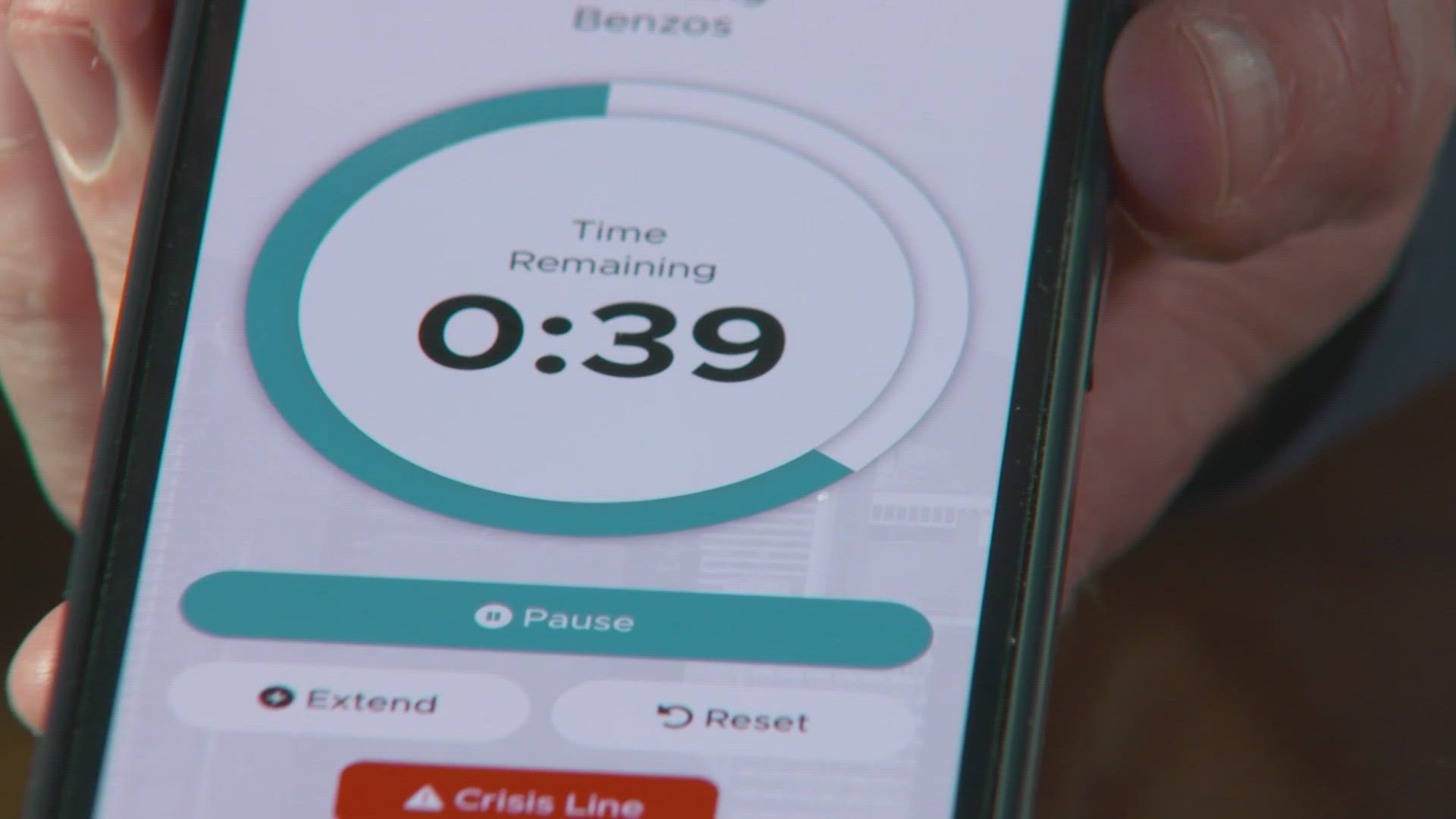SEATTLE — In King County alone, 433 people have died this year from a fentanyl overdose, and the issue remains widespread across the northwest, including in Canada.
In British Columbia and Ontario, a technology designed to save lives is gaining traction: a smartphone app called Lifeguard that aims to connect drug users with first responders within minutes of an overdose.
"It saved my life twice," said Andrew Macleod, a former drug user and resident of White Rock, B.C.
Macleod said he is three months clean now, but when he was using, he preferred to use drugs alone in his room.
"I just set the app, didn't think anything of it, and then I woke up and they were doing CPR on me," said Macleod.
By being unable to hit “stop” on the Lifeguard app during two separate overdoses, Macleod said the technology was able to save his life on both occasions.
"It will stay on that alarm, and it actually gets a bit louder, until somebody actually turns it off," said Jeff Hardy, founder and CEO of Lifeguard Digital Health.
The app's founder showed KING 5 how it works.
“We hit confirm, and the timer then starts," said Hardy. The assumption is that, when time is up, the user will turn off the loud and urgent alarm.
But if they don’t, "It thinks that you’ve had an overdose or are in crisis, so it’ll send an alert to the 911 desk," explained Hardy.
He added, "It will have captured your GPS location.”
There is also a feature where you can fill out your address and any other helpful details before hitting the start button on the timer.
A dispatcher then calls you to double-check you are indeed unreachable before dispatching first responders.
"It’ll send an ambulance right to you," said Hardy.
Macleod said his family has since told him what happened: first responders showed up at his home doorstep.
"My uncle said, 'Like, everyone's fine here, what's going on?' They said, 'No, somebody's not fine.' So they came upstairs, found me, and I guess hit me with some Naloxone and did the CPR," said Macleod.
In the meantime, another Lifeguard product could soon be used by the Public Health – Seattle and King County: Lifeguard Lite, which is a wall-mounted physical timer, separate from a phone. The health department is in introductory conversations with the company.
"Sending an alert to the front desk of social housing," said Hardy.
Lifeguard Lite is designed with residents of supportive housing in mind, he said, where a front desk can be notified if they fail to turn off the timer alarm.
With the actual app and 911 functionality, Hardy said he’s having trouble breaking through in the Seattle market.
"We’re working with a lot of governments to try and open to up to us so we can use it," said Hardy. "It's really a matter of who's gonna pay for it. And normally the business model is that the government will pay and license it and provide it to the people for free."
Most of their work is with B.C. Emergency Health Services, said Hardy. But another government currently using it is the Métis Nation in B.C.
"It can make the difference in saving a life," said Dr. Kate Elliott, Minister of Mental Health and Harm Reduction, Métis Nation of B.C.
She said the app also gives updates on the local drug supply, including whether it's been contaminated. She finds this feature has been helpful for users of all kinds of drugs in her community.
"If you are someone who doesn't use drugs regularly, and you think you're going to be doing some cocaine, it wouldn't take much fentanyl in there, or benzodiazepines, for it to stop you to breathe," said Elliott.
She said the nation's leaders are continuing to promote the Lifeguard app, so they can get more people to use it.
"We pretty much have a double the rates of suicide, substance use and alcohol use, compared to the non-Indigenous population... It's that one extra layer of protection," said Dr. Elliott.
Hardy said the Lifeguard app has saved 66 lives in three years.
Hardy said the app is downloadable in the U.S. on Google Play, but will not work until they have secured a local emergency services contract.

